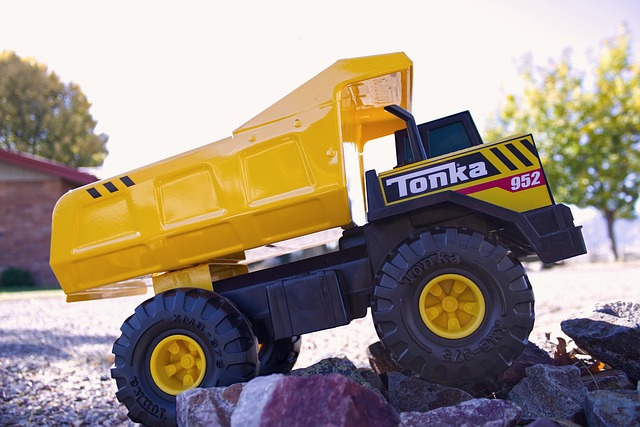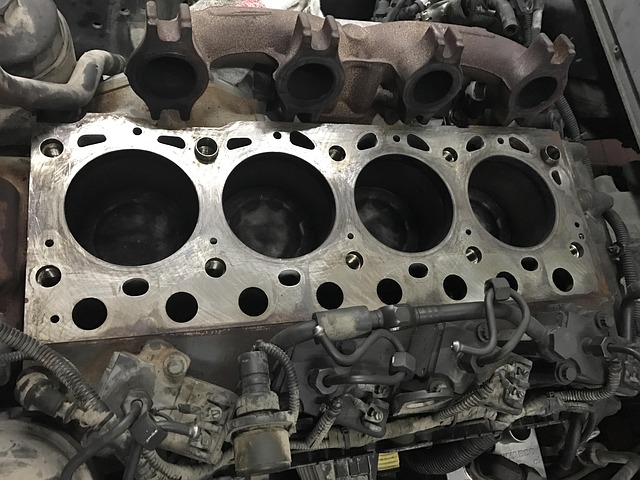The hauling industry's reliance on diesel contributes to environmental and economic challenges, prompting a need for sustainable logistics. Select Electric Trucks (SETs) are emerging as a game-changer, promising reduced emissions and operational costs while maintaining or surpassing diesel performance. Despite initial costs and infrastructure challenges, advancements in EV technology, expanding charging networks, and government incentives drive a shift towards green hauling. This transition benefits the environment, reduces carbon footprints, and offers economic advantages through lower operating costs.
The hauling industry, long dominated by fossil fuels, faces a critical juncture as environmental concerns mount. This article explores sustainable solutions for haulers, focusing on select electric trucks as a path to reducing carbon emissions and mitigating the sector’s significant environmental impact. We delve into the current landscape, analyze challenges, and present a comprehensive guide to implementation, including benefits, step-by-step adoption strategies, and future trends shaping the industry.
- The Current Hauling Industry and Its Environmental Impact
- – Overview of the traditional hauling sector
- – Challenges faced in adopting eco-friendly practices
- – Statistical evidence of environmental consequences
The Current Hauling Industry and Its Environmental Impact

The current hauling industry heavily relies on traditional diesel-powered vehicles, contributing significantly to air pollution and greenhouse gas emissions. This reliance on fossil fuels not only poses environmental challenges but also has economic implications due to fluctuating fuel prices. With growing awareness of climate change, there’s a pressing need for sustainable logistics options, especially in the realm of long distance electric hauling. Green trucking initiatives are emerging as a game-changer, offering promising solutions to reduce the carbon footprint associated with the industry.
Selecting Electric Trucks (SET) represents a strategic shift towards a more environmentally friendly approach. By adopting electric vehicles, haulers can substantially decrease their environmental impact while enjoying cost savings from reduced fuel expenses and lower maintenance requirements. This transition supports not just sustainable logistics but also aligns with broader global efforts to promote green trucking initiatives, paving the way for a cleaner, greener future for the industry.
– Overview of the traditional hauling sector

The traditional hauling sector has long been dominated by diesel-powered vehicles, which while powerful and efficient for transporting goods over long distances, come with significant environmental and economic costs. These include high greenhouse gas emissions, dependence on non-renewable fuel sources, and operational expenses tied to fossil fuels. In response to these challenges, the industry is increasingly turning towards sustainable solutions, particularly the adoption of Select Electric Trucks (SETs).
SETs represent a game-changer in the hauling sector, offering an environmentally friendly fleet alternative with battery-driven transport capabilities. Heavy duty electric rigs equipped with advanced batteries and efficient motors can match or even exceed the performance of their diesel counterparts while drastically reducing emissions and operational costs. This shift towards green hauling not only contributes to a cleaner, healthier environment but also positions haulers as forward-thinking businesses committed to sustainability.
– Challenges faced in adopting eco-friendly practices

Adopting eco-friendly practices presents a unique set of challenges for haulers. One of the primary hurdles is the initial cost associated with transitioning to electric trucks, which can be significantly higher than their traditional diesel counterparts. This financial barrier is especially daunting for smaller hauling businesses operating on tight margins. Additionally, range anxiety—the fear of running out of battery power before completing a job—remains a concern despite advancements in electric vehicle (EV) technology. Many haulers are reluctant to make the switch due to concerns about adequate charging infrastructure and the potential downtime it may cause during their daily operations.
Furthermore, the availability and standardization of charging stations for commercial vehicles pose challenges. While public charging networks are expanding, they might not always be accessible or convenient for haulers operating in remote areas or with irregular schedules. Nonetheless, as technology evolves, and governments worldwide offer incentives for green initiatives, the landscape is shifting. The growing popularity of electric commercial vehicles and sustainable transportation networks signals a promising future where environmental responsibility and economic viability go hand in hand.
– Statistical evidence of environmental consequences

The environmental impact of traditional hauling methods is a growing concern, with statistics revealing alarming trends. The transportation sector contributes significantly to global greenhouse gas emissions, and haulers, particularly those involved in long-distance operations, play a pivotal role in this ecosystem. Studies show that the carbon footprint left by conventional fuel-guzzling trucks is substantial, exacerbating climate change and air pollution. As such, there is an urgent need for sustainable alternatives, especially in the face of escalating environmental regulations worldwide.
One promising solution gaining traction is the adoption of Select Electric Trucks for long-distance hauling and urban delivery. These zero-emission vehicles offer a greener alternative to traditional fuel-based cargo transportation. By switching to electric cargo bikes or long distance electric hauling, haulers can reduce their carbon emissions, improve air quality in densely populated areas, and contribute to a more sustainable future. This shift not only benefits the environment but also has economic advantages, such as lower operating costs over time.
As the haulage industry faces increasing pressure to reduce its environmental footprint, embracing sustainable solutions is no longer an option but a necessity. The current reliance on conventional diesel vehicles contributes significantly to air pollution and greenhouse gas emissions. However, adopting eco-friendly practices and technologies, such as selecting electric trucks, offers a promising path forward. By transitioning to cleaner energy sources, haulers can mitigate their environmental impact while also enjoying potential cost savings and improved operational efficiency. It’s time for the industry to embrace innovation and lead the way towards a greener future, ensuring a sustainable and thriving sector for generations to come.
